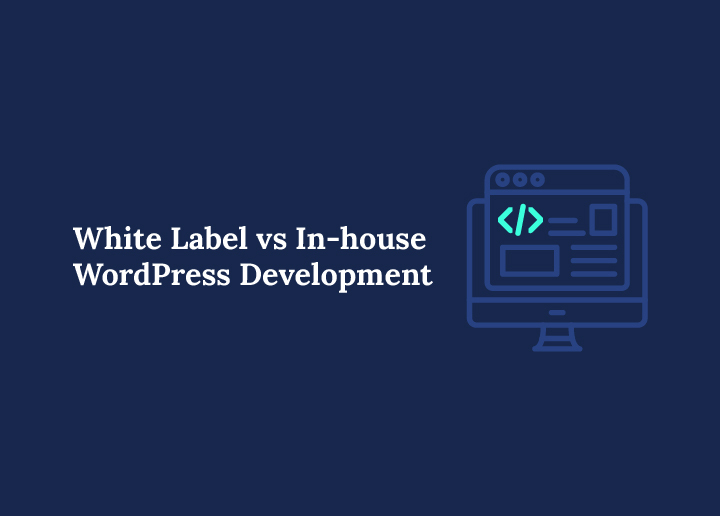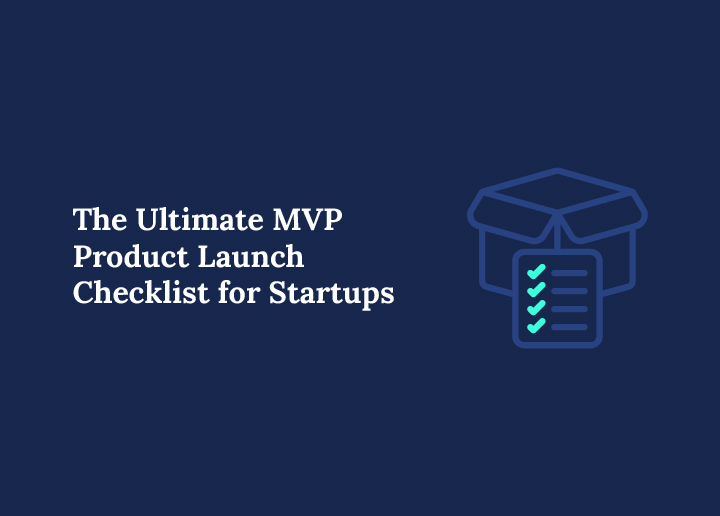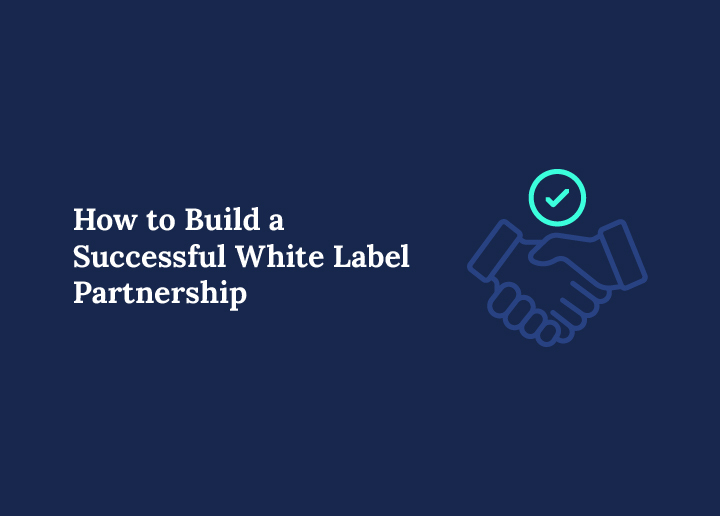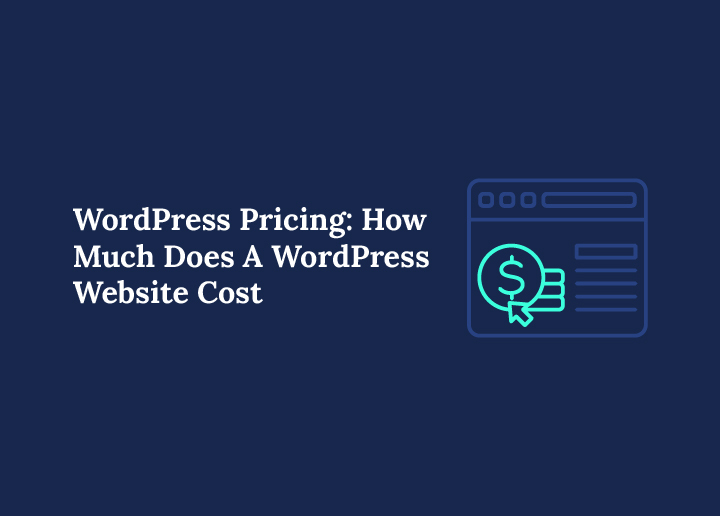For agencies offering WordPress services, choosing the right development approach is crucial. As client needs grow and project scopes expand, agencies often find themselves at a crossroads: should they establish an in-house development team or leverage the benefits of a white-label WordPress partner? Both options have unique advantages and limitations, impacting an agency’s scalability, cost-efficiency, and brand control.
Deciding between these paths requires a clear understanding of each approach’s potential to align with the agency’s values, client expectations, and long-term vision. By examining the benefits and challenges of each, agencies can make an informed choice that supports their growth, reputation, and ability to deliver on client demands.
Let’s explore each route in detail to help agencies determine which option fits their goals best.
What is White-Label WordPress Development?

White-label WordPress development is when an agency outsources WordPress tasks to a specialized third-party provider. This provider works discreetly in the background, enabling the agency to deliver high-quality projects to clients under its own branding. White-label services allow agencies to expand their offerings and handle more projects without hiring additional full-time staff.
Key Services Offered by White-Label Providers
- Custom Theme Development: Creating unique, high-quality themes that align with each client’s brand vision.
- Plugin Integration and Customization: Seamless integration of plugins or custom development to meet specific client requirements.
- SEO and Website Maintenance: Continuous site optimization and updates, ensuring long-term functionality and visibility.
- Website Security: Regular security audits, malware checks, and updates to keep client sites secure and stable.
White-label WordPress service providers often cater to agencies looking to scale quickly, offering flexibility, scalability, and expert support. Agencies can pay for services on a per-project basis or through ongoing retainer arrangements, which can be cost-effective for agencies with fluctuating workloads.
Scale Your Agency with Ease
Make scaling simple with Seahawk’s white-label WordPress solutions—professional support that empowers your agency to deliver high-quality projects on time, every time.
The Hybrid Development Model
Agencies can combine an in‑house core team with white-label specialists to enjoy the best of both worlds. This hybrid approach allows you to retain direct client communication and brand building while gaining access to specialized expertise when handling WordPress development projects.
In this model, your dedicated team focuses on core competencies such as project management tools and a deep understanding of client needs. Meanwhile, a reputable white label agency manages overflow work to increase development capacity during peak seasons or when you need to handle multiple projects simultaneously.
Key benefits of a hybrid strategy include
- Strategic solution for balancing resource-intensive tasks and ongoing support without enlarging office space
- Scalable solutions that let your development company ramp up quickly for website development or custom plugin work
- Seamless client experience through direct communication by your in‑house developers, supplemented by third-party involvement in technical aspects
- A cost-efficient solution that preserves control and quality while avoiding the fixed overhead of hiring full-time staff
This model also reduces risk. You maintain oversight of the entire development process and can dynamically shift WordPress website development company responsibilities. By blending in‑house expertise with white-label solutions, you build a flexible operation that can adapt to shifting client demands.
What Is In-House WordPress Development?

In-house WordPress development involves building an agency’s own development team. This team works on projects internally, handling every aspect of development according to the agency’s standards. With in-house development, agencies have full control over the development process, team dynamics, and project timelines, ensuring greater alignment with their brand values.
Responsibilities of an In-House Development Team
- Custom Development: Building unique WordPress themes and features tailored to each client’s specifications.
- Project Management: Coordinating projects, deadlines, and resources from start to finish to ensure timely completion.
- Continuous Training and Learning: Staying up-to-date with WordPress updates, new technologies, and industry trends.
- Client Interaction and Feedback: Engaging directly with clients to adjust and customize solutions as needed, fostering long-term relationships.
While in-house development provides more control and brand consistency, it also requires higher investment, as agencies need to consider the cost of salaries, benefits, training, and the necessary infrastructure for their team.
Pros and Cons of White-Label WordPress Development Services

White-label development offers agencies a flexible way to expand their offerings without the long-term commitments of hiring new staff. However, as with any approach, it comes with both benefits and limitations. Here are some key pros and cons of white-label WordPress development.
Pros of White-Label WordPress Development Services
Outsourcing through a reputable white label partner unlocks strategic advantages that fuel agency growth and efficiency. Below are the primary benefits agencies gain when they leverage white label WordPress development services.
- Cost-Effective: White-label services allow agencies to avoid the fixed costs associated with full-time salaries, benefits, and infrastructure. Agencies pay on a per-project basis or through retainers, making it an affordable option for those with variable demand.
- Scalability: White-label providers can quickly ramp up resources to handle larger projects or seasonal spikes, giving agencies the flexibility to grow without the pressure of expanding their workforce.
- Access to Specialized Skills: Many white-label providers have teams with diverse skill sets, allowing agencies to tap into expertise they may not have in-house, like custom plugin development or advanced SEO.
- Quick Turnaround: With a team dedicated to specific WordPress tasks, projects can often be completed faster, enabling agencies to deliver on tight deadlines and maintain client satisfaction.
- Reduced Hiring and Training Hassles: By outsourcing work to experts, agencies save time and effort on recruitment, onboarding, and training, enabling them to focus on client relationships and business growth.
Cons of White-Label WordPress Development Services
While white‑label partnerships offer scalability and specialized expertise, they also introduce certain limitations agencies must navigate. Depending on your chosen white label partner, here are some issues that you might face:
- Quality Assurance: Since the agency relies on the provider’s standards, maintaining consistent quality can sometimes be challenging. Agencies may need to establish strict guidelines to ensure deliverables meet their brand standards.
- Dependency on Provider: If the white-label partner fails to deliver on time or meet expectations, the agency’s reputation can suffer. Dependency on external providers means agencies must vet partners carefully.
- Potential Communication Gaps: When working with external providers, communication barriers can lead to misunderstandings or delays, especially when working across time zones or different work cultures.
- Less Control Over the Process: Unlike in-house teams, white-label services offer limited control over the development process, which can be a drawback for agencies wanting complete oversight of every project detail.
Keep Reading: How White-label WordPress Development Helps Agencies
Pros and Cons of In-House WordPress Development
Building an in-house team offers agencies greater control, consistency, and closer alignment with brand goals. However, it also entails higher costs and the challenges of managing and retaining a skilled workforce. Here are the pros and cons to consider.
Pros of In-House WordPress Development Services
In‑house development empowers your agency with complete oversight of every stage of the website development process. It fosters stronger client relationships by ensuring direct communication and a deep understanding of your brand vision.
- Direct Control: Agencies can directly oversee every aspect of the project, from design to development, ensuring each project aligns perfectly with client and brand expectations.
- Brand Consistency: An in-house team is more familiar with the agency’s values and standards, leading to more consistent work quality and style.
- Immediate Collaboration and Communication: With in-house teams, collaboration is quicker, and developers can adjust projects instantly based on feedback, leading to faster and more efficient workflows.
- Long-Term Client Relationships: An in-house team often builds stronger client relationships over time, understanding their needs, preferences, and brand voice more intuitively.
- Quality Control and Transparency: Agencies with in-house teams have complete quality control, ensuring every project meets their standards without the need for external checks.
Cons of In-House WordPress Development Services
Building an in‑house WordPress team grants you full control and brand consistency. However, it also introduces challenges that can strain your budget, resources, and long‑term growth.
- Higher Costs: Building and maintaining an in-house team involves recurring expenses such as salaries, benefits, training, and infrastructure costs, which can be financially burdensome.
- Recruitment and Retention Challenges: Finding and keeping skilled developers is a common struggle, especially for agencies that require specialized knowledge or have a high turnover rate.
- Limited Flexibility: In-house teams may struggle with scalability during high-demand periods, and expanding requires additional resources and time.
- Ongoing Training Needs: Keeping the team updated with the latest WordPress and industry trends demands time and investment in continuous training and development programs.
- Risk of Skill Gaps: Agencies relying solely on in-house talent may face skill gaps, particularly when specialized knowledge is needed for complex projects.
Related: Best White-label Agencies to Look Out For
White-Label vs In-House WordPress Development: Comparison Table
When deciding between white‑label and in‑house WordPress development, agencies must evaluate their core competencies, budget constraints, and growth objectives. The following comparison table highlights the key factors to help you choose the most cost-effective and scalable solution for your next website development project.
| Criteria | White-Label Development | In-House Development |
| Cost | Lower, without long-term financial commitments | Higher, with ongoing salary and benefit costs |
| Scalability | Highly scalable, adaptable to client demands | Limited by team size and resources |
| Speed to Start | Quick, as white-label providers are often ready to begin | Slower, due to recruitment and onboarding |
| Quality Control | Relies on provider’s standards | Direct oversight and control |
| Team Expertise | Access to specialized skills as needed | Limited to in-house expertise |
| Client Transparency | Requires client communication and clear expectations | Full transparency, enhancing client trust |
This table highlights the fundamental differences between white-label and in-house development, helping agencies identify which approach aligns best with their business model and goals.
When White-Label Development Is the Right Choice for Agencies
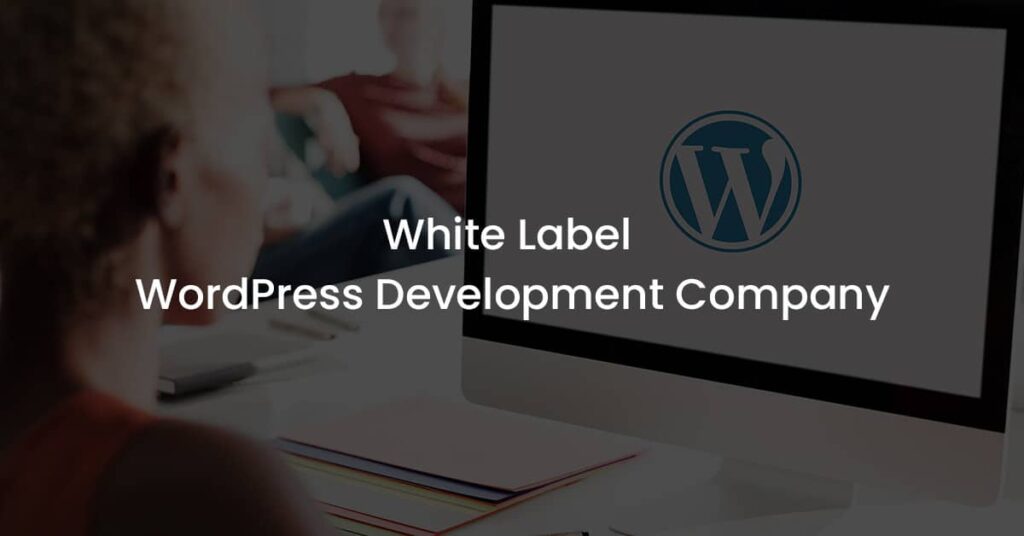
White-label development is an excellent option for agencies seeking flexibility, speed, and cost savings. Here are some scenarios where white-label might be the best fit:
- Fluctuating Client Demands: Agencies facing variable workloads can benefit from white-label services’ scalability, quickly adjusting to peak or low-demand seasons.
- Budget Constraints: For agencies with limited budgets, white-label services offer a more economical solution compared to the fixed costs of an in-house team.
- Specialized Knowledge: White-label partners often bring expertise in custom plugin development, SEO, or security, allowing agencies to expand service offerings without extensive training.
- Tight Deadlines: Agencies needing quick turnarounds or short-notice project completions can rely on experienced white-label teams to meet deadlines effectively.
Explore: How to Offer Premium WordPress Services Without Expanding Your Team?
When In-House Development Is the Best Fit
In-house development works well for agencies prioritizing quality control, brand consistency, and close client relationships. Here are some situations where in-house teams are ideal:
- Strict Quality Control Requirements: Agencies needing direct oversight and frequent customization should consider an in-house team for tighter control over quality.
- High Brand Consistency: For agencies with a unique style or approach, an in-house team allows for brand consistency in every project.
- Consistent Client Workload: Agencies with a stable client base benefit from in-house resources that ensure continuity and familiarity with the brand’s standards.
- Long-Term Client Relationships: In-house teams foster closer relationships with clients, understanding their needs and preferences deeply, which can strengthen client loyalty.
Find: White-Label Agreement: Know Everything for a Successful Partnership
Technology Stack and Best Practices for In‑House & White‑Label Teams
A well-defined technology stack and best practices make collaboration between in‑house developers and external teams efficient. Establishing standard workflows ensures every contributor understands the entire project and can execute tasks without friction.
Consider implementing
- Version control with Git and hosted repositories on platforms such as GitHub or GitLab to track changes to custom themes and plugins.
- Continuous integration and deployment pipelines that automate testing, code reviews, and staging deployments
- Project management tools like Jira or Asana to assign tasks, monitor progress, and maintain visibility across all the technical aspects of development
- Staging environments for quality assurance before pushing updates live to production sites
- Security plugins and DevOps scripts that automate routine maintenance, vulnerability scans, and backups
- Documentation standards and code style guides ensure that in‑house and white label teams adhere to the same conventions.
These practices streamline website development and reduce rework. They also ensure that your processes remain repeatable and transparent, whether you are launching a new WordPress project or providing ongoing support.
Case Studies and Success Stories for Agency Success
Illustrating each development model with real-world examples builds credibility and helps prospects visualize outcomes. Below are two white label case studies highlighting measurable results, including faster turnaround times, significant cost savings, and high client satisfaction.
Chenchula: Elevating a Brand Through Seamless WordPress Development
Seahawk Media partnered with Chenchula to revamp their digital presence through a white label solution. The project focused on sleek design, fast performance, and mobile responsiveness. Results included speedier load times and improved engagement.
Impackedful: Scalable White Label WordPress Solutions for a Growing Agency
Impackedful needed a reliable white-label partner to handle its growing development workload. Seahawk delivered customized WordPress solutions that improved turnaround time and reduced development costs. The collaboration resulted in a smooth, scalable workflow.
Legal, Security, and Compliance Essentials for WordPress Outsourcing
Protecting client data and defining clear responsibilities are essential when outsourcing WordPress development. Drafting robust legal agreements and enforcing security best practices safeguards your agency’s reputation and ensures compliance with industry standards.
Include the following elements in your agreements:
- Service level agreements that specify response times, uptime guarantees, and quality metrics for ongoing support
- Non-disclosure agreements to secure sensitive information throughout the entire development process
- Data protection clauses covering GDPR, CCPA, or other relevant privacy regulations when handling client data
- Performance guarantees and remedies if the provider fails to meet agreed-upon benchmarks
- Security audit processes and certification requirements for reputable white label providers to prevent vulnerabilities
- Intellectual property assignments that clarify ownership of code, designs, and other deliverables
You minimize risk, demonstrate professionalism, and reinforce client trust by embedding these considerations into your contracts. Ensuring all parties understand their obligations sets the stage for smooth project execution and high-quality websites.
Conclusion: Making the Right Choice for Your Agency
Whether your agency is just starting or expanding to meet new demands, the choice between white-label and in-house WordPress development is significant. White-label development provides flexibility, cost efficiency, and immediate scalability, making it ideal for agencies that need a dynamic approach to growth. On the other hand, an in-house team offers control, consistency, and stronger client relationships.
Tip: Start with a white-label partnership and evaluate its impact on client satisfaction and project quality. This approach offers a low-risk way to expand offerings without the commitment of an in-house team. When ready, consider transitioning to a hybrid model or building an in-house team as your agency’s needs evolve.
